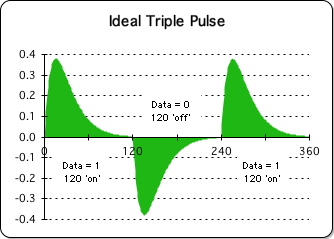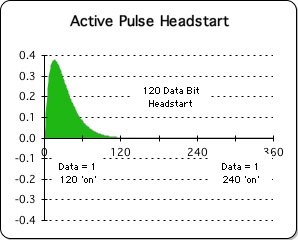21st Century State of Science regarding the Necessity of Sleep
Does the Living Algorithm’s Triple Pulse parallel any other features of sleep?
In the prior article we discussed the patterns of correspondence between the effects of sleep deprivation on cognitive performance and the Living Algorithm’s Triple Pulse. Does the mathematics of the Triple Pulse exhibit any parallels with other features of sleep? For instance, does the Triple Pulse have anything in common with our need for sleep?
What is the Current Scientific Viewpoint regarding the Necessity of Sleep?
To answer this last question, we must first ask ourselves: what is the current scientific viewpoint regarding sleep? Is sleep necessary? If so, why? What theory does the scientific community offer for this unusual daily phenomenon that takes up such a large part of each and every day? What do their experiments show? Is the necessity of sleep primarily related to resting the brain? … the body? … both? … neither? Or have they discovered other mechanisms behind this curious phenomenon? To draw contrasts and comparisons let's explore the current understanding held by the scientific community regarding the necessity of sleep.
Science doesn't know why we sleep, even though it is an essential human need
With characteristic modesty Dr. Medina admits the ignorance of science regarding this ubiquitous phenomenon.
“Considering that sleep occupies a walloping one-third of our time on the planet, it is incredible to contemplate that we still don’t know why we sleep.” (Medina, brain rules, p152, 2008)
Sleep is so important that we suffer severe consequences if we are unable to satisfy this essential need. Indeed, we can do without food or even water (2 of our biological needs) for days and still function properly. As Dr. Medina reported in the previous article, even one day without sleep and our mental capabilities drop dramatically. As sleepless night is piled upon sleepless night, psychosis is often the result. In fact, sleep deprivation is a form of torture that frequently drives the tormented soul mad. The most extreme example is Fatal Familial Insomnia, a rare disease where an individual loses the ability to sleep. As indicated by the name, it always leads to death.
Sleep rests our body, not our brain
What is the reason for this curious mechanism? Is it because the need to rest the brain is so essential? Hardly. Here is Dr. Medina’s professional answer to the ‘rest’ explanation for sleep.
“If you ever get a chance to listen in on a living brain while it is slumbering … the brain does not appear to be asleep at all. Rather, it is almost unbelievably active during “rest”, with legions of neurons crackling electrical commands to one another in constantly shifting patterns – displaying greater rhythmical activity during sleep, actually, than when it is wide awake. … Researchers early on began to disabuse themselves of the notion that the reason we rest is so that we can rest. When the brain is asleep, the brain is not resting at all.” (Medina, brain rules, pp. 152&3)
Body shutdown turns us into helpless prey
It seems evident that the scientific community is distancing itself from the ‘rest’ explanation, at least in terms of the brain. This emerging position suggests that brain activity during sleep is purposeful activity. In contrast, the physical body, independent of the brain, does experience an almost complete shutdown as we slumber. This fact implies that the sleep function is particularly significant. There must be a compelling motive for the body to shut down its stimulus-response functions, effectively turning us into defenseless prey.
“Even if the brain doesn’t behave itself bioenergetically, other parts of the body do rest during sleep, in something like a human version of micro-hibernation. That introduces a second puzzle: Sleep makes us exquisitely vulnerable to predators.” (Medina, brain rules, p.153)
Why did evolution sacrifice defense for sleep?
Obviously there must be a significant reason for life to take such risks with its own survival. The next question emerges spontaneously: What is it about sleep that compels our defense mechanisms to regularly shut down for a substantial fraction of the 24-hour day? Evolutionary forces pursue survival strategies that enable us to pass on our ‘selfish’ genes. Why did evolutionary mechanisms choose the risk of sleep, while sacrificing some ability to immediately defend self and family? This unusual biological mechanism must confer a powerful evolutionary advantage to outweigh the survival risks entailed in this behavior.
Contemporary Scientific understanding regarding the necessity of sleep
It seems evident from Dr. Medina's account that 21st century science accepts that sleep is a human necessity. However, the scientific community still does not know the exact nature of this essential need. We do know that the brain is not at rest during sleep, but is instead incredibly active. In contrast, the body is at rest. In fact, Dr. Medina reports that the body enters a state of 'micro-hibernation'. Shutting down the organism's ability to respond rapidly to external threats for one third of every day jeopardizes its survival. These intriguing results elicit complex questions.
Why is Sleep a necessity?
Why must we sleep? More specifically, why is sleep a necessity, if it entails such risks? Sleep combines two unique behavioral elements during this vulnerable state. The unusual physical micro-hibernation is linked to a distinctive form of brain activity – suggesting an intriguing area of investigation. With all the miraculous technological research tools at their disposal, why haven’t scientists been able to determine a psychological, biological, chemical, or physical reason for this empirical fact that is as real as death? Is the answer hidden in these traditional categories, just waiting to be discovered? Or could this nightly phenomenon be related in some significant fashion to the process by which an organism digests information? For now let us address a simpler question: What does the mathematics of the Triple Pulse reveal about this cognitive mystery regarding our need to sleep?
Triple Pulse Mathematics: The Necessity of Sleep
Mathematical Fact: Rest Pulse necessary to refresh Active Pulse
1. Alternation of 1s and 0s

2. Uninterrupted 1s

Let us revisit some earlier graphs to understand what the Triple Pulse model suggests regarding the ‘necessity of sleep'. An alternating series of 1s and 0s generates the graph at the top right – the ideal Triple Pulse. An uninterrupted series of 1s generates the graph at the bottom right. Note that the pulse fades out inevitably and permanently when the 1s continue without interruption. In other words, without the Rest Pulse of 0s, the Active Pulse of 1s 'disappears'. With an uninterrupted ‘break’ of 0s, the three pulses attain their ideal proportions. The Triple Pulse model is clear. A Rest Pulse of 0s is required to refresh the Active Pulse of 1s. This mathematical fact is derived from the Triple Pulse model, an innate form of the Living Algorithm.
Sleep Deprivation correspondences with Triple Pulse
What did the prior article imply regarding the Triple Pulse and its correspondence with the empirical results of sleep deprivation studies? The mathematical interaction between the Rest and Active Pulses seems to symbolize the interaction between sleep and our ability to think. In this comparison between our mathematics and the empirical results of sleep deprivation studies, the Rest Pulse is associated with sleep time, and the Active Pulse is associated with testable cognitive abilities. Interrupting or shortening the Rest Pulse corresponds with sleep loss in these studies. The diminished potentials of the ensuing Active Pulse mimic the empirical loss of testable cognitive abilities due to sleep loss.

The parallels between the mathematical behavior of the Triple Pulse and human behavior are shown at left. Depriving the Rest Pulse diminishes the ideal potentials of the Active Pulse just as depriving the sleep cycle diminishes cognitive abilities.
Triple Pulse inference: Sleep refreshes our ability to think.

Let's extend this mathematical symbol to the necessity of sleep. As mentioned, a Rest Pulse of 0s is required to refresh the Active Pulse of 1s. If there is no Rest Pulse, the Active Pulse never reappears. In other words, the Active Pulse needs the Rest Pulse to renew its existence. Our prior Sleep Deprivation article indicated that the Rest Pulse is analogous to sleep and that the Active Pulse is analogous to our ability to think. The inference is obvious. Sleep is a necessity for the brain because it somehow refreshes our testable cognitive abilities. Just as the Active Pulse needs the Rest Pulse for its continued existence, our cognitive abilities, and by extension the skills that are required for the continued survival of human life, need sleep.
Evolution chooses refreshed thinking over security from predators.
If sleep is indeed required to refresh our ability to think, it makes sense that evolution would choose sleep over short-term safety. If the organism's ability to think or digest information is undermined, then arguably, its survival skills are similarly impaired. In this diminished state, the organism’s ability to find food, mates, or avoid becoming prey will be severely compromised. If the organism chooses constant vigilance by sacrificing sleep, paradoxically, it is choosing a more dangerous path. The resultant impaired ability to think outweighs the short-term survival risks entailed in the act of sleeping. Therefore, beyond the physical benefits that sleep provides for the body, the importance of sleep for effective mental functioning justifies this evolutionary strategy.
No contradictions between theory and fact
The current scientific understanding affirms the Triple Pulse's correspondences and inferences regarding the reality of sleep. We find that there is nothing of note in the sleep deprivation studies that contradicts this relationship. It seems clear that adequate sleep somehow refreshes our cognitive abilities, just as the Rest Pulse refreshes the Active Pulse.
How does sleep refresh our ability to think?
How does sleep refresh our ability to think? Does the explanation fall into a traditional area of investigation, such as biochemistry or psychology? Or is it perhaps due to some, as yet undiscovered, mechanism associated with DNA? Does it instead have to do with the Unified Field Theory that Physicists are presumably on the verge of discovering? Or is it possible that sleep fundamentally provides the organism time to digest and organize the information that it consumed during the day? Isn’t it probable that this information digesting function would be mathematical in nature? Could this mathematical system provide one of the innate structures that enables the development of complexity in living systems?
Links
These intriguing questions must be put on hold for now, while we gather more corroborating evidence. The phenomenon of naps is clearly related to sleep. What does the scientific research tell us about naps? What can the Living Algorithm System tell us about naps? What kind of connection is there between the Triple Pulse and this mysterious, yet regular, occurrence? If there is any kind of relationship between Living Algorithm mathematics and this unique mode of human behavior, does it contradict or reinforce previous findings? If prior findings are supported, how does this investigation refine our understanding? For immediate answers to these basic questions, check out The Importance of Naps.
To enter the biographical realm, read The Author’s Personal Investigation of Sleep
If the metaphorical world is of more interest, peruse In-between Chapter 7-8 – Life reflects upon her relationship with the Living Algorithm.